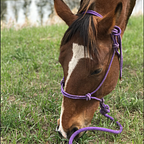I don’t know whose dog it was.
The neighborhood kids played with it. We’d throw it balls, run, roll on the grass, chase it and let ourselves be chased.
We were running up a steep street, throwing the ball from one side to the other as we went. The black, curly labradoodle-looking pooch chased us and the ball.
It felt like heaven. Tail wagging, giggling, running, skipping, sun shining heaven.
I remember. I felt free. I felt expansive. I felt real joy in the moments before the dead dog. It is the only childhood memory I have of those feelings. They were just gone after that day, permanently removed. I was six.
A big gray, low-to-the ground sedan — thick, dull bondo-gray, not gray paint — started up the hill after us, speeding up as we moved to where the sidewalk would have been if we’d had sidewalks. It kept speeding up. We fell silent. Then it intentionally ran down the dog.
I remember the dog’s scream. I remember it tumbling under the car and lying on the ground as the car sped off. I remember the bright red blood.
I think I blacked out for a minute. The next thing I remember is running full speed down the street and into the driveway of my house, tears pouring from my eyes, gasping for air.
I remember my mother standing there, holding the handle of the car door she’d just opened. I don’t know where she was going.
She stood there glaring at me. And when she opened her mouth she screamed at her sobbing, breathless, child, “WHAT?!” I remember thinking for a split second that I had made a big mistake and should just keep running.
I didn’t run. Between sobs, I spit out the story of the dead dog.
She grabbed me by the shoulders and shook. Her face was just a few inches from mine. She yelled, “What is the matter with you? Stop it! It wasn’t even your dog!” Standing up straight calming herself, straightening her outfit with her hands, she glared down at me and said in a strangely calm, controlled tone, “I have to go. Go upstairs and cry to the babysitter.” She shoved me away from the open car door and didn’t look at me again.
I remember standing in the driveway watching her drive away and turning toward the door. I remember staring at the bright rustoleum-red driveway through the blur of my tears asI walked. That is the last thing I remember about dead dog day.
The way my mother was with me on dead dog day was just her way of being with me. Good days, bad days, they were the same. She was the same. She never missed an opportunity to teach me that I was a problem that needed fixing, her problem. And the rest of my family jumped on the bandwagon pretty willingly. They consistently and unashamedly blamed me for her behavior and for our family’s problems. They had to, lest they incur her wrath as well.
Dead dog day is one of a handful of childhood memories I’ve always carried with me. Until recently, I thought about that day, and a few others, every single day of my life. I can’t stop the memories from coming. They’re just suddenly there and I’m living dead dog day, or some equally devastating memory, all over again. And when they come, I feel the same pain, fear, and shame that six-year-old me felt.
I’ve learned that the intrusive memories are a symptom of the Complex PTSD I’m working to recover from. But knowing that doesn’t dampen the pain of those memories. Not yet anyway.
I write about my childhood. I write about the abuse that damaged my brain. I write about my recovery process. I write about sobriety. I write my truth. I write the good, the bad, the ugly and the beautiful.
I write for me. Only for me.
